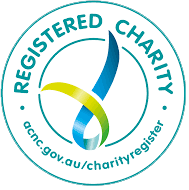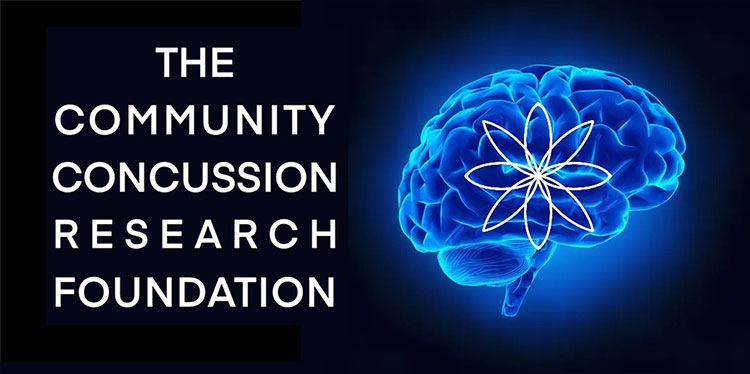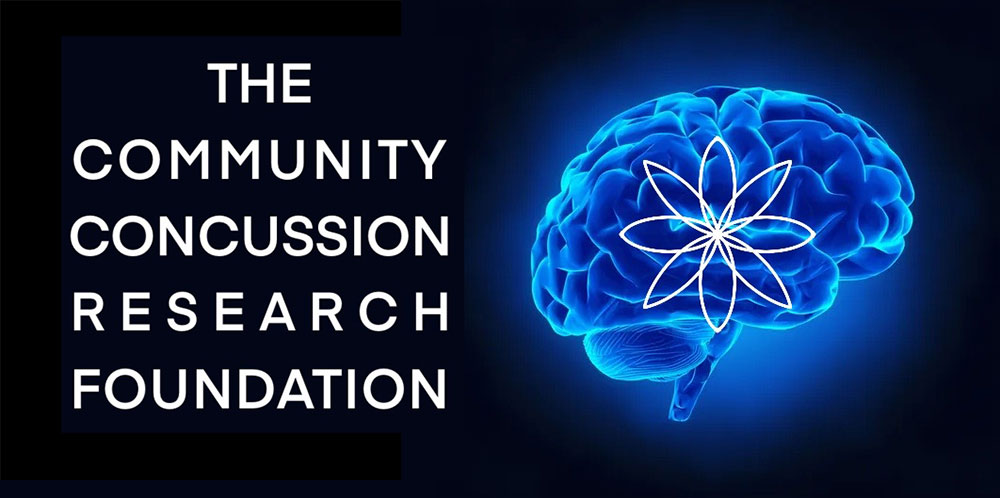Community Concussion Research Foundation
A non-profit foundation with the aim of minimising the incidence of discretionary concussion via awareness raising, testing and advocacy.
Dedicated to advancing the knowledge and understanding of the dangers of sub-clinical concussion and clinical concussions from collision-based sports and lobbying to protect generations to come.
There’s much for the wider community to learn about the relationship between concussions and neurodegenerative diseases. The Community Concussion Research Foundation (CCRF) is embarking on increasing that knowledge and improving health outcomes.
With help from others, we can tell the best sports story ever told.

Urgent Action Required.
20% of Australians participate in contact or collision-based sports. Concussion/CTE (chronic traumatic encephalopathy) in collision sports is a significant and growing public health issue that can result in permanent brain damage.
Exposure to sub-concussive repeated brain trauma is the risk factor for CTE.
It is the number one problem for collision sports around the world.
Given the very rapid rise in concussion hospitalisations in junior Australian football players in the past decade (it has the highest number of any team sport played in Australia) many medical experts are calling for urgent rule changes.
Child sports injury prevention initiatives in Australia to date have either been inadequate or ineffective. The AFL has not taken significant action to address the very rapid increase in concussion in junior football over the past decade.
COMMUNITY CONCUSSION RESEARCH FOUNDATION LTD (CCRF)
2023 CONCUSSION SUMMIT
CLICK HERE TO READ MORE ABOUT THE SUMMIT AND THE AGENDA COVERED.
CCRF launch Presentation – November 2022
CCRF Target & Recommendations
Target: 25% Reduction in Concussion Occurences
The Target is to reduce the incidence of concussion from sport by 25% per annum.
The CCRF is calling on all collision sports in Australia to adopt this target and implement strategies to achieve it.
Recommendation 1: Junior Football Non-Contact Modifications
The Community Concussion Research Foundation (CCRF) recommends modification of all junior football matches to non-contact versions (as in AFL 9s: touch football with no tackling).
Every child who participates in junior Australian football activities/matches has the right to expect they will be participating in a safe environment where risks are minimized.
Recommendation 2: Expert Medical Science Group Establishment
The CCRF recommends any concussion in Australian football matches/practice (including juniors) triggers a minimum one month return to play protocol, under expert medical supervision.
Players must recover completely before returning to play. Players aren’t always honest about their symptoms, so they need to be thoroughly evaluated by a health care provider who is experienced working with concussion before returning to play.
Recommendation 3: Concussion Minimisation - R&D
The CCRF recommends the establishment of an expert medical science group, independent of the AFL, to develop new safe match rules for junior players (up to 18 years of age) and senior players to minimise concussions, based on an ‘abundance of caution’ principle.
The current governance structure under the AFL is not operating successfully.
Tip of the Iceberg
There are about 60,000 hospitalisations in Australia per year due to sports injuries (using 2018/19 AIHW data, the last full year pre-covid). Australian football has the highest number of hospitalisations of any team sport in Australia with about 5,000 per year. There were 35,830 injury hospitalisations among Australian football players between 2011 and 2019. (Note: Because of under-reporting, experts regard these numbers to be most likely the tip of the iceberg.)
No.1 cause of Hospitalisations
89% increase in Concussions
While 10 to 19-year-olds make up 46 per cent of these injuries, they make up 68 per cent of concussions.
The concussion problem in junior Australian football is summarized in this extract from The Age in September 2021:
Head on: Rising concussion rates in community footy exposed amid calls for action on youngsters.
As elite sporting competitions such as the AFL grapple with how to reduce head trauma, exclusive data shows that head knocks in community football have soared. In particular hospitalisations of teenagers suffering concussions in community footy are growing at a concerning rate and experts are calling for urgent action.
The Australian Institute of Health and Welfare (AIHW) data released exclusively to The Age and The Sydney Morning Herald reveals concussion has been the top cause of hospitalisations in community Australian rules football since 2013/14. More than two-thirds of all concussions in the sport were sustained by young footballers aged between 10 and 19, causing alarm among experts who worry about the damage done to developing brains. Some are now calling for longer periods on the sidelines after concussions, especially for teenagers, and for further modifications to junior sport.
The AFL did not respond to questions based on the Australian Institute of Health and Welfare data, including whether it was considering any additional measures to combat concussion in community, and particularly junior, football.
The Human Brain
The Human Brain is special and needs to be protected.
⦿ Sitting on the shoulders of each person is the most complicated object in the known universe.
⦿ The human brain is the most sophisticated organ on the planet.
⦿ Humans are born with all the brain cells they will have for the rest of their life.
⦿ The brain is not fully matured until age 25.
A piece of brain tissue the size of a grain of sand contains 100,000 neurons (or nerve cells). However, damage to neurons can have a great impact.
“You wouldn’t let your child drink a glass of cognac or smoke a cigarette, so why would you send him/her out on a football field to risk brain damage?
The fundamental definition of child abuse is the intentional exposure of a child to the risk of injury.
That injury does not have to occur.”
Professor Bennet Omalu – Neuropathologist (University of California)
Our Mission.
The CCRF is a Health Promotion Charity operating in all States and Territories within Australia.
Concussion is defined by the International Consensus Statement as “a traumatic brain injury induced by biomechanical forces”. The participation in collision-based sports has been identified as a precursor for chronic traumatic encephalopathy (CTE), Dementia, Alzheimer’s, Traumatic Brain Injuries (TBI) and mental health issues due to the repetitive impacts and concussions sustained during training and game play.
The Community Concussion Research Foundation (CCRF) will provide elite and sub-elite collision-based sports people brain scanning, rehabilitation programs, rapid point of care diagnostic tools and education sessions to discuss the importance of brain health and the risk concussions have on quality of life and the importance of mitigation and rehabilitation.
CCRF emphasises the importance of providing a safe playing space for all participants in collision-based sports, whether that be at the grass-roots or elite levels. Additionally, CCRF will use best practice science and medical advice to develop proactive intervention, mitigation and prevention strategies to create safer sporting environments.
The CCRF Proposed activities include:
- Promote the prevention or control of chronic traumatic encephalopathy (CTE), traumatic brain injuries (TBI) and concussions within a sport setting.
- Create a Community Concussion Research facility
- Undertake rapid point of care diagnostic techniques
- Offer support and treatment (medical, scientific and mental health) to current and retired sports people suffering from the impacts of concussion, traumatic brain injury and/ or chronic traumatic encephalopathy
- Offer trained medical and scientific support during diagnostic and treatment period of concussion/ TBI and/or CTE
- Collaborate with local and international researchers
- Work with peak sporting bodies to facilitate the implementation and running of concussion rehabilitation and return to play protocols
- Partner or collaborate with other organisations to pursue related, similar or compatible activities relating to prevention and control of CTE, TBI and concussion
The Community Concussion Research Foundation aim to provide accessible brain scans to all levels of the collision-based sports community overlayed with safety protocols, in conjunction with rehabilitation programs where brain damage has been identified.
Our other primary focus is to provide safe Return to Play Protocols based on world’s best practice medicine and science along with Rapid Point of Care Diagnostic Tools for early intervention and mitigation of brain trauma from collision-based sports.
03 9375 4225
Phone
pjess@pjaca.com.au
43 Fletcher Street
Essendon Victoria, 3040
03 9370 2197
Fax
PO Box 845
Essendon, Victoria, 3040

Contact Us
We are here to answer any questions or schedule a meeting. Please feel free to call our office or send an email using the form below.

